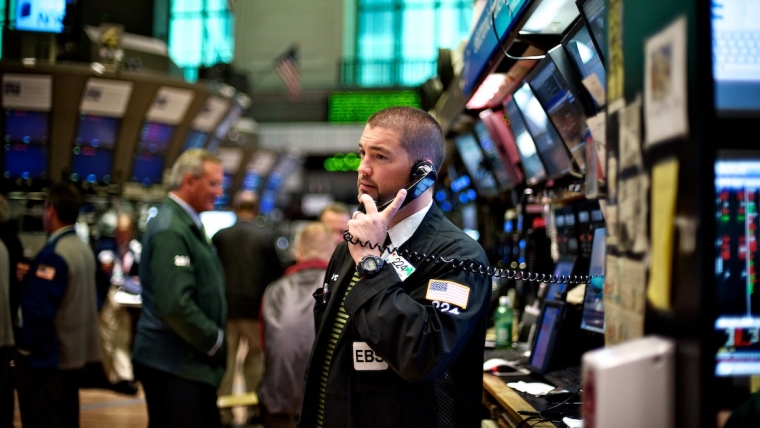
US-China tensions have weighed on equity markets overnight, although the moves (S&P500 -0.7%) have been reasonably modest. The NZD has fallen amidst the more cautious risk sentiment.
The US Senate passed a bipartisan bill aimed at forcing non-US firms to certify they are not under control of a foreign (read: Chinese) government or the Public Company Accounting Oversight Board is not able to complete three consecutive years of audits. If firms don’t comply, the bill would require delisting from US exchanges. The bill needs sign-off from Congress and Trump but, if implemented, could lead to the delistings of Chinese tech heavyweights such as Baidu, Alibaba and JD.com.
Trump lashed out at China in a tweet, accusing the country of a “massive disinformation campaign” and blaming the “incompetence of China” for the worldwide spread of the virus. China responded that it will safeguard its sovereignty, security and interests while media reported that China was prepared to respond with retaliatory measures if the US presses ahead with sanctions.
Finally, China outlined plans for new national security laws in Hong Kong, with could reignite protests in the city and further inflame tensions with the US. Trump told reporters “if it happens, we’ll address that issue very strongly.”
Global equity markets have fallen in response, with the S&P500 and NASDAQ down around 0.7% and Germany’s DAX index down almost 1.5% overnight. The moves overnight have pared back some of the equity market gains from earlier in the week, on hopes for a COVID-19 vaccine. The S&P500 is still over 3% higher than where it closed last week.
In economic data, the European PMIs improved in May although they remain deep in contractionary territory. The Eurozone manufacturing index improved from 33.4 in April to 39.5 in May while the services index rose from 12 to 28.7. US jobless claims fell modestly last week but, to put things in perspective, almost 40 million Americans have filed for unemployment claims since the crisis started.
Markets were unmoved by the economic data. It is likely to be a few months yet before markets start reacting to data releases, when the debate will shift to how fast (or not) economies are recovering from their recessions. Global rates were little changed on the session although, notably, the 5-year UK yield fell into negative territory for the first time.
US policymakers signalled further stimulus is likely. US Treasury Secretary Mnuchin said “I think there is a strong likelihood we will need another bill”, in reference to another stimulus package. Meanwhile, Federal Reserve vice-chair Clarida said the more monetary and fiscal support could be needed, adding that the Fed might return to its balance sheet options in the coming meetings. Clarida said the Fed was being briefed on Yield Curve Control (a policy whereby the central bank targets a longer-term interest rate) but said this was an option for down the road.
The USD has experienced broad-based, albeit modest, strength over the past 24 hours. The BBDXY index is up 0.1% although it remains towards the bottom of its narrow trading range over the past two months.
The NZD and AUD have both fallen about 0.4% over the past 24 hours, reflecting the more cautious risk sentiment in markets. The NZD ran into resistance around 0.6150 overnight and is back down to around 0.6115 this morning.
Yesterday, Fonterra put out a wide, but realistic, range on its opening 2020/21 milk price forecast of $5.40 to $6.90 (mid-point $6.15). The mid-point represents the lowest opening milk price forecast in four years, but nothing like the depths of the ‘dairy downturn’ at $4.25 in 2016/17. Fonterra’s announcement was close to expectations, with the mid-point sitting right on recent future market pricing. Our midpoint 2020/21 forecast by season’s end is $6.50, but with very wide bounds around it.
NZ long-term interest rates remain at, or near, record low levels. The 10-year government bond yield fell 6bps, to 0.62%, after a very strong tender of bonds from New Zealand Debt Management. The 10-year swap rate was down just 1bp yesterday, to 0.6%, equalling its record low level. All eyes are on the RBNZ’s 2pm announcement today on its pace of bond buying for the week ahead.
Daily exchange rates
Select chart tabs
2 Comments
Its funny listening to the "reasons ' offered for an ever-so-slight drop in our currency ,by traders .
If anything , the NZ$ should be strengthening against the Aussie , US$, Euro , Yen and GBP .......
>Aussie is skirmishing with China over the virus investigation , China is slowing ore imports down
>The US economy is reeling
>Germany , biggest economy in EU is officially in recession
>Ditto Japan
> UK is another mess about to blow up , Brexit is not over and the economy is in trouble from Covid
New Zealand on the other hand has almost eliminated COVID and we will recover within three to 5 years
The cows are still producing milk and we are still exporting food .
And we should be aggressively punting NZ as an investment destination
Yes, but it is one of life's little pleasures to read some of the more creative types trying to state the blindingly obvious whilst seeming to say something useful when they don't actually know why it happened.
Alan Greenspan was a master of that; "a sort of irrational exuberance" was a pretty spectacular effort I reckon.

We welcome your comments below. If you are not already registered, please register to comment
Remember we welcome robust, respectful and insightful debate. We don't welcome abusive or defamatory comments and will de-register those repeatedly making such comments. Our current comment policy is here.